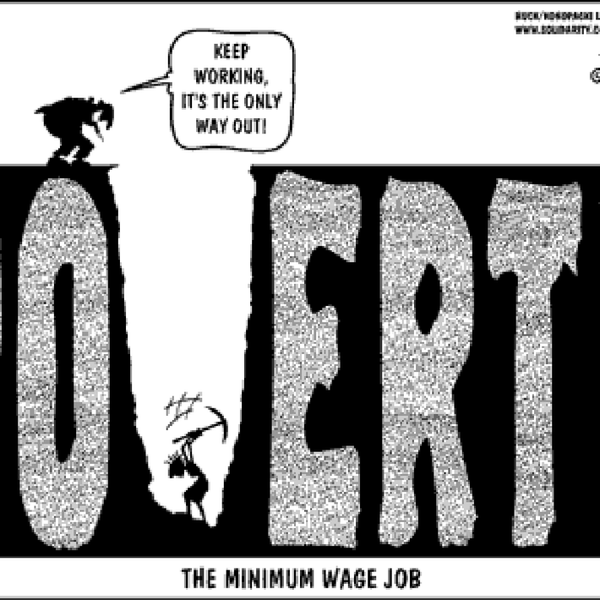A typical conversation I have regarding my work:
Person: “What do you do for work?”
Me: “I’m a janitor.”
Person: “Oh.”
They look away, the I-never-should-have-asked expression graces their face and a quick change of topic ensues.
Or:
Person: “Well, that’s why you’re going to college. So you don’t have to do that forever.”
Or:
Person: “I couldn’t do that job.”
What is it about blue-collar jobs that scare people so much? Depending on what company you work for and where you’re cleaning, being a janitor is actually not that bad. I clean desks, I take out trash and recycling, I clean and restock bathrooms, and I dust. Other people do the vacuuming and mopping. I get paid a little more than minimum wage, and my hours aren’t terrible because I can start after class and I’m done by midnight. I like my bosses, and I like my coworkers. It’s actually a very good job.
So why do people balk at it? Yeah, cleaning toilets is no fun, but I take a lot of pride in my work. People need people to take out the garbage, to wipe the dirt off everything, to vacuum up scraps. Office spaces need tidying up, and the employees that work there have enough to worry about with their own work. My job makes otherwise bleak-looking work spaces tolerable, and makes everyone else’s job easier. Sometimes I even get a “thank you,” and it makes me feel good to know I’m part of the reason the workplace keeps running. I think people think I’m subservient to others or something; that because my job is a service job, that because I’m cleaning up after people, somehow I’m inferior to them.
But that couldn’t be farther from the truth. Your wage may define what you’re able to afford, where you’re able to live, but it never, and I mean never, makes you subservient to someone who makes more money than you. Anyone who thinks that is buying into classism, which is a major problem in the United States.
Though the cost of living has risen significantly in the past decade, the minimum wage has stayed about the same. A study was done by the National Low Income Housing Coalition showing the minimum wage requirements to afford a two-bedroom apartment, by state. Here in Washington, you’d need to make $23.13 an hour, and at the current minimum wage, you’d need to work 98 hours a week to afford it. The minimum wage used to be a wage that people could live off of and was put in place to keep people and families out of poverty. Now, to escape poverty, working-class families have to work multiple jobs and sacrifice time with their family and loved ones as a result.
And the attitude is that if people want to make more than just enough to scrape by, they need to go to college. But with prices of college skyrocketing, college is more than out of reach for many families unless you want to leave with a mountain of debt that will take most of your life to pay off.
In any case, even if everyone went to college, we would still need people to clean our offices, to drive our taxis, to make and deliver our food. Service jobs are vital to our economy and our culture. Why is it that people who do them don’t deserve a living wage?
Just because you don’t need a degree to figure out how to scrub a toilet doesn’t mean that you don’t deserve housing or to be able to afford food. Anyone who thinks otherwise is small-minded and selfish and likely hasn’t had to work that kind of job before themselves. Yes, I wish I had more hours, and I wish I made more money doing what I’m doing. But I’m not ashamed of being a janitor.
And to my fellow blue-collar employees: be proud. Your service is needed, and your work is valid.





















